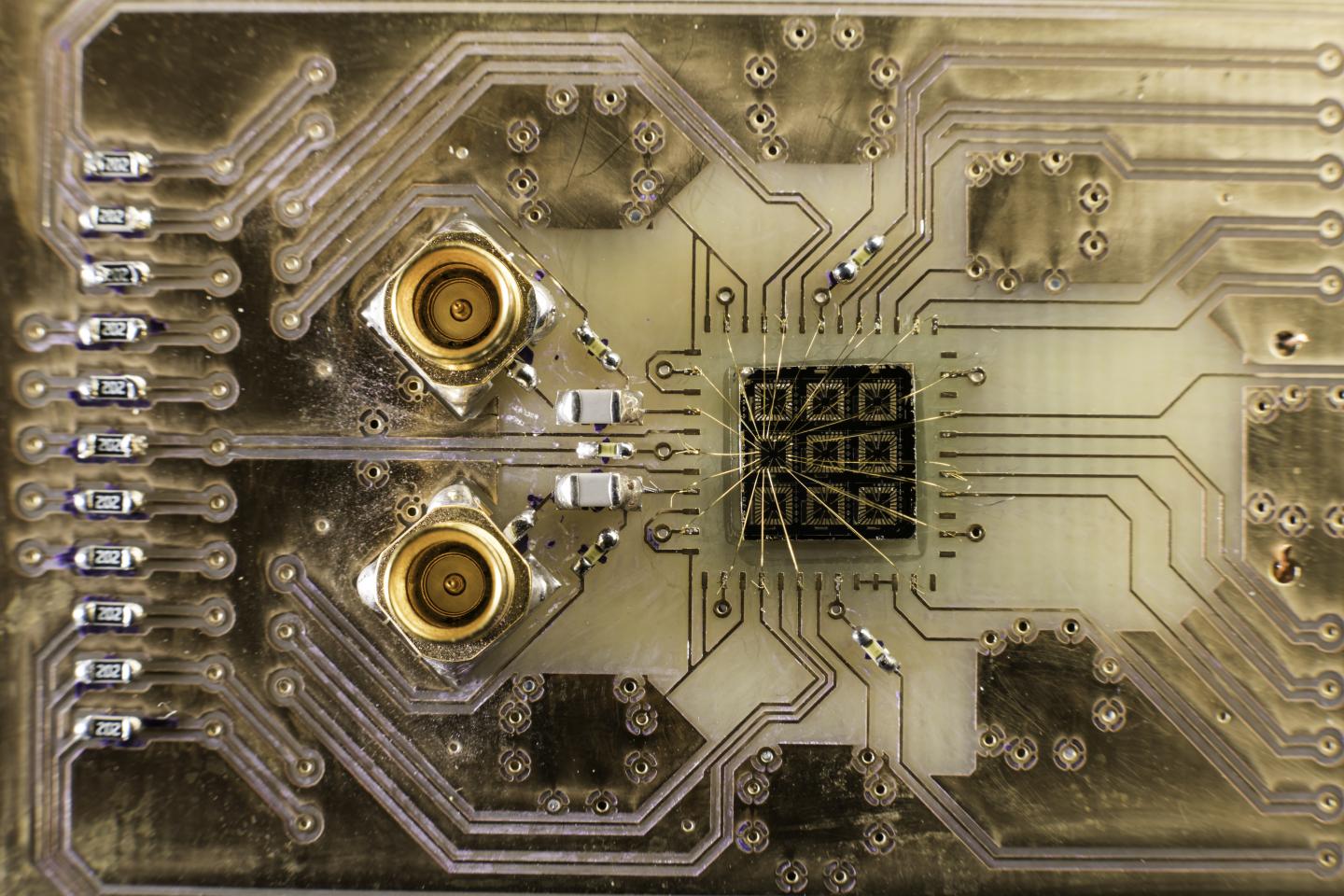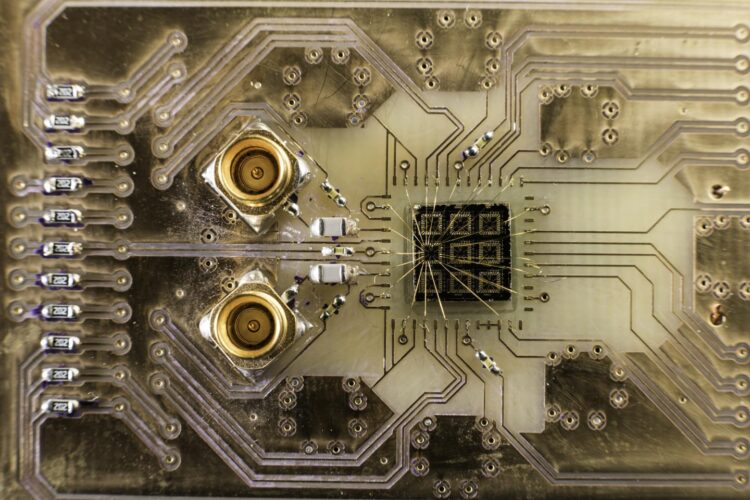University of Rochester researcher receives $1 million grant to study quantum thermodynamics

Credit: University of Rochester photo / J. Adam Fenster
In order to make a car run, a car’s engine burns gasoline and converts the energy from the heat of the combusting gasoline into mechanical work. In the process, however, energy is wasted; a typical car only converts around 25 percent of the energy in gasoline into useful energy to make it run.
Engines that run with 100 percent efficiency are still more science fiction than science fact, but new research from the University of Rochester may bring scientists one step closer to demonstrating an ideal transfer of energy within a system.
Andrew Jordan, a professor of physics at Rochester, was recently awarded a three-year, $1 million grant from the Templeton Foundation to research quantum measurement engines–engines that use the principles of quantum mechanics to run with 100 percent efficiency. The research, to be carried out with co-principal investigators in France and at Washington University St. Louis, could answer important questions about the laws of thermodynamics in quantum systems and contribute to technologies such as more efficient engines and quantum computers.
“The grant deals with several Big Questions about our natural world,” Jordan says.
PHYSICS AT A SMALL LEVEL
The researchers have previously described the concept of quantum measurement engines, but the theory has never been demonstrated experimentally.
In the microscopic quantum world, particles exhibit unique properties that do not align with the classical laws of physics as we know them. Jordan and his colleagues will use superconducting circuits to design experiments that can be carried out within a realistic quantum system. Through these experiments, the researchers will study how the laws of energy, work, power, efficiency, heat, and entropy function at the quantum level. These concepts are currently poorly understood in quantum mechanics.
MICROSCOPIC POWER TASKS
Quantum measurement engines may work in microscopic environments for very small power tasks such as moving around an atom or charging a miniaturized circuit. In these capacities, they may be important components for quantum computers.
This type of engine couldn’t currently be used to power a car, however; the power in a quantum measurement engine is measured in the unit picowatts, with one picowatt equal to one million millionths of a watt. For comparison, a single lightbulb has about 60 watts of power.
“The power scales involved–numbers like picowatts–indicate the large gap between our human interests and these tiny engines,” Jordan says.
One way to make quantum measurement engines for human-scale activities may be “through massive parallelization,” Jordan says. “Each device only outputs a tiny amount of energy, but by making billions of them working together, you could make a macroscopic engine from the ground up.”
A NEW TYPE OF FUEL
Jordan and his team will also investigate another major area of research: how it might be possible to extract work from a system using entanglement as a fuel. In entanglement–one of the basic of concepts of quantum physics–the properties of one particle are interlinked with properties of another, even when the particles are separated by a large distance. Using entanglement as a fuel has the possibly revolutionary feature of creating a non-local engine; half of an engine could be in New York, while the other half could be in California. The energy would not be held by either half of the system, yet the two parts could still share energy to fuel both halves proficiently.
“We will show that the engine can, in principle, be perfectly efficient,” Jordan says. “That is, there would be an ideal transfer of energy from the measurement apparatus to the quantum system.”
The foundation award reflects the significance of quantum technology as a national and international priority, and Rochester’s key role in the enterprise. The project itself builds on Rochester’s robust history of research in optics and physics and current efforts to better unravel the mysteries of quantum mechanics.
“The University of Rochester has an existing strength in quantum physics, and indeed was the birthplace of the field of quantum optics,” Jordan says. “We have a good collection of quality researchers in place, a historical legacy of quantum physics, and ongoing University support of quantum physics.”
###
Media Contact
Lindsey Valich
[email protected]
Original Source
https:/





